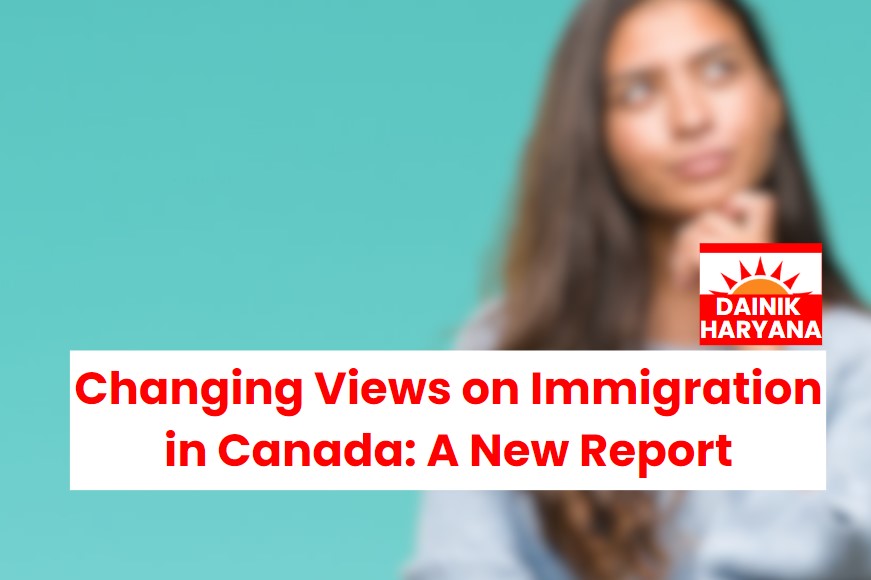For many years, immigration has been a key part of Canada’s identity, enriching its multicultural society and boosting the economy. However, a recent report from the Environics Institute reveals a significant shift in how Canadians view immigration.
Key Findings from the Report
Rising Concerns About Immigration Levels
The 2024 Environics report shows that 58% of Canadians believe immigration levels are too high—this is the highest figure in 25 years and a sharp rise from 2023. Traditionally, Canadians have supported immigration as a way to help the economy and address an aging population. Yet, concerns about housing costs and economic uncertainty have changed many minds.
Regional Differences
The report highlights that attitudes toward immigration vary by region. Provinces like Ontario, Quebec, and British Columbia still show support for immigration. In contrast, areas like Alberta and Saskatchewan are experiencing growing skepticism, largely due to worries about job competition and the strain on public services. Political views also play a role, with more conservative regions often expressing higher anti-immigration sentiments.
Housing and Infrastructure Issues
A major concern driving these changing attitudes is the housing crisis in Canada. Many citizens worry that the current immigration levels are overwhelming the country’s infrastructure. In cities like Toronto and Vancouver, soaring housing prices have intensified these fears, leading to the perception that newcomers are adding to the problem.
Economic Worries
Economic issues also contribute to negative views on immigration. Rising inflation and fears of job competition are causing anxiety among Canadians, particularly those in lower-income brackets or sectors like construction and retail. While the government promotes immigration as a solution to labor shortages, many feel that the overall number of newcomers is too high.
Shifts in Views on Refugees
Public opinion about refugees has notably changed. The report indicates that only 38% of Canadians support the current number of refugees, a significant drop. Concerns about integration, public safety, and the long-term costs associated with supporting refugees are driving this shift.
Trust in the Immigration System
Many Canadians believe the immigration system is mismanaged, citing long wait times, application backlogs, and incidents of fraud. Trust in the government’s ability to handle immigration effectively has diminished, leading to calls for stricter controls.
Influence of Media and Politics
Media coverage and political discourse also shape public attitudes. Immigration has become a hot topic in politics, with some parties focusing on its negative aspects. Media stories often highlight challenges rather than benefits, reinforcing negative perceptions.
Looking Ahead
The Environics report sheds light on the changing attitudes towards immigration in Canada. While the country has long been seen as welcoming, increasing concerns about housing, jobs, and refugee intake are prompting many to question whether current immigration levels are sustainable.
Despite these worries, many Canadians still recognize the importance of immigration for economic growth and addressing labor shortages. The challenge for policymakers will be to address these concerns while highlighting the benefits of immigration.
FAQs About Changing Attitudes Toward Immigration
Why are Canadians more concerned about immigration in 2024?
Canadians are worried about housing shortages, job competition, and economic uncertainty. A record 58% believe immigration levels are too high, citing concerns about infrastructure and services.
How do views on immigration differ by region?
Support for immigration is higher in Ontario and British Columbia, while provinces like Alberta and Saskatchewan show more resistance due to job competition and public service pressures.
What role does housing play in these changing attitudes?
Housing shortages are a major concern. Many believe that high immigration is driving up demand and prices, especially in urban centers with already strained housing markets.
How has public opinion on refugees changed?
Skepticism about refugees has increased, with only 38% supporting current intake levels. Concerns about integration and public safety contribute to this shift.
What are the main criticisms of Canada’s immigration system?
Critics point to mismanagement, processing delays, and fraud as major issues. There is growing concern that immigration levels do not match the country’s ability to provide housing and services.
4o mini


